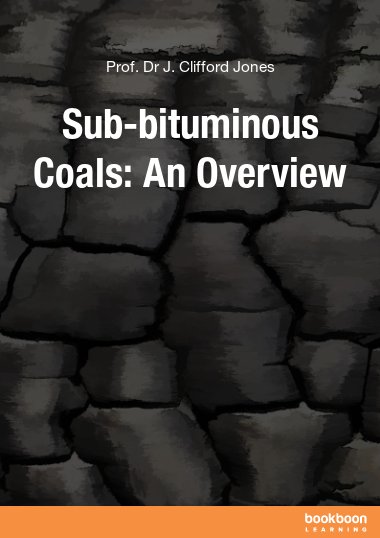The book is focused entirely on coals which are sub-bituminous in rank. In the coalification sequence these fall between lignite and bituminous. The book gives details of properties of such coals including calorific values and Hardgrove indices and then gives examples of their use in power generation. Powder River Coals have a chapter to themselves. There is a discussion of carbon sequestration at a plant raising electricity with sub-bituminous coals, also accounts of their carbonisation and gasification. There is consideration of conversion to liquid fuels, and of hazards including spontaneous heating and dust explosions. There is also a detailed section on pricing.

